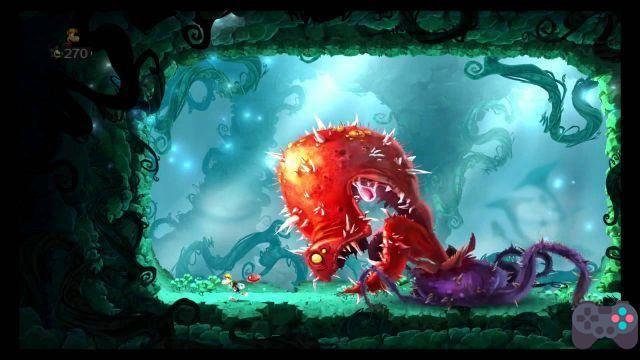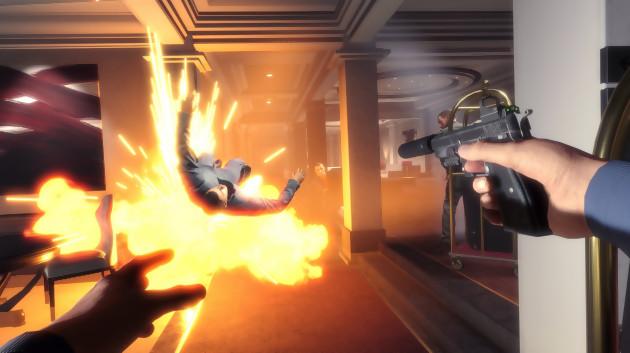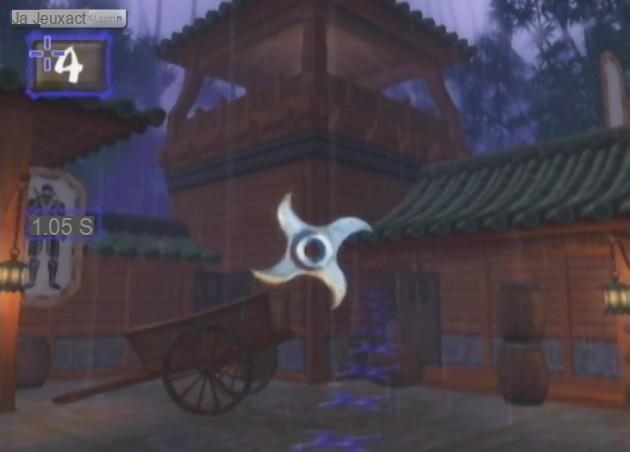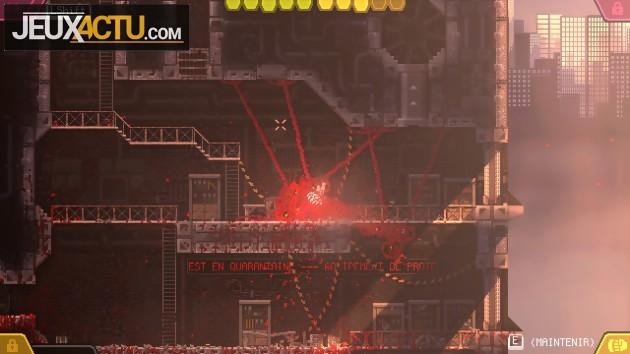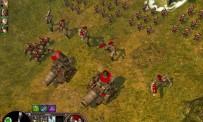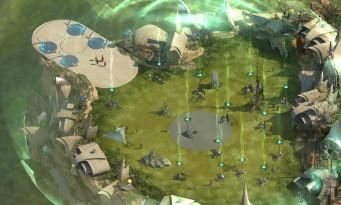 First of all, we are not dealing with a direct sequel to Planescape Torment. The two games do not share the same characters, nor the same universe. But as its name suggests, Torment: Tides of Numenera definitely seeks to place itself in the same line as its model. Thanks to a few developers in common, but above all an identical spirit. And the two titles come together above all on their literalness, which even exceeds that of the first Fallout and Baldur's Gate. It's very simple, the developers announce the presence of 1,2 million words in the game. To give you an idea, know that this represents more than the entirety of the seven volumes of Harry Potter. And about as much as the Lord of the Rings trilogy to which you would add War and Peace, known among other things for its record thickness... In other words, you're going to have some reading! Which could have quickly become a problem if it was just clunky filler. Fortunately, we are really far from such a pitfall. Even if we do not escape some long descriptions, the quality of writing is really very high. We therefore take real pleasure in browsing the dialogues and discovering the rich stories of the various secondary characters.
First of all, we are not dealing with a direct sequel to Planescape Torment. The two games do not share the same characters, nor the same universe. But as its name suggests, Torment: Tides of Numenera definitely seeks to place itself in the same line as its model. Thanks to a few developers in common, but above all an identical spirit. And the two titles come together above all on their literalness, which even exceeds that of the first Fallout and Baldur's Gate. It's very simple, the developers announce the presence of 1,2 million words in the game. To give you an idea, know that this represents more than the entirety of the seven volumes of Harry Potter. And about as much as the Lord of the Rings trilogy to which you would add War and Peace, known among other things for its record thickness... In other words, you're going to have some reading! Which could have quickly become a problem if it was just clunky filler. Fortunately, we are really far from such a pitfall. Even if we do not escape some long descriptions, the quality of writing is really very high. We therefore take real pleasure in browsing the dialogues and discovering the rich stories of the various secondary characters.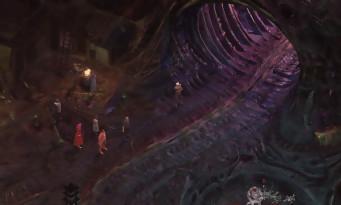 This point is reinforced by the presence of a complete and good quality French translation. But in reality, what makes this profusion of text really digestible is quite simply the originality of the futuristic universe of Numerera, which changes us pleasantly from the endless medieval fantasy. Far from doing things by halves, the game plunges us a billion years into the future, when eight successive civilizations have already risen before dying. In the Ninth World to which you belong, it is very difficult to draw a line between magic and technology, so advanced is the latter. This is one of the strengths of this universe, which is also full of new esoteric concepts, which we will not spoil here, but which we guarantee that the discovery is worth the detour. Magic, technology, souls, spirits, mental labyrinth, philosophy, past and present combine to form a unique and frankly exotic atmosphere.
This point is reinforced by the presence of a complete and good quality French translation. But in reality, what makes this profusion of text really digestible is quite simply the originality of the futuristic universe of Numerera, which changes us pleasantly from the endless medieval fantasy. Far from doing things by halves, the game plunges us a billion years into the future, when eight successive civilizations have already risen before dying. In the Ninth World to which you belong, it is very difficult to draw a line between magic and technology, so advanced is the latter. This is one of the strengths of this universe, which is also full of new esoteric concepts, which we will not spoil here, but which we guarantee that the discovery is worth the detour. Magic, technology, souls, spirits, mental labyrinth, philosophy, past and present combine to form a unique and frankly exotic atmosphere.
NEW WAVE
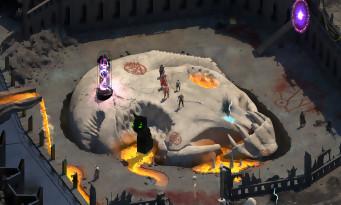 This is how the game starts in your own mind, even as you are in the midst of death/rebirth. Just fallen from the sky, you embody the Last Remnant, a vestige of the consciousness of the Changing God, transferred into a new body, and fleeing a tentacled creature called Affliction, which it is not clear whether it is real or symbolic (since you cross it in your mind…). But let's stop there with these clumsy attempts to describe the scenario and the universe, because we will never be able to compete with the richness and subtlety of the game's writing. amazing machines and characters, some of which will become your companions. In the purest tradition of good role-playing games, it is possible to discuss with them, to take advantage of their specific talents and to part with them, voluntarily or not. This is how when you wake up, you will come face to face with Aligern, who has living tattoos, and Callistege, permanently surrounded by several ghostly versions of herself, all slightly different because they come from various parallel dimensions... And that's just the beginning ! Thereafter, you will go from surprise to surprise. At least in the first part of the adventure, which presents us with cities with grandiose architecture, populated by merchants, priests, assassins and adventurers who all have exciting things to tell. The soufflé clearly falls then, with relatively empty places and a less inspired artistic direction, even if certain cities continue to delight us. It should be noted, however, that the developers themselves admitted having had to make cuts from their initial ambitions, but that they also announced a series of free downloadable content to remedy this. The first of them will, for example, introduce an additional companion. As it stands, you will still need about thirty hours to see the end of the adventure.
This is how the game starts in your own mind, even as you are in the midst of death/rebirth. Just fallen from the sky, you embody the Last Remnant, a vestige of the consciousness of the Changing God, transferred into a new body, and fleeing a tentacled creature called Affliction, which it is not clear whether it is real or symbolic (since you cross it in your mind…). But let's stop there with these clumsy attempts to describe the scenario and the universe, because we will never be able to compete with the richness and subtlety of the game's writing. amazing machines and characters, some of which will become your companions. In the purest tradition of good role-playing games, it is possible to discuss with them, to take advantage of their specific talents and to part with them, voluntarily or not. This is how when you wake up, you will come face to face with Aligern, who has living tattoos, and Callistege, permanently surrounded by several ghostly versions of herself, all slightly different because they come from various parallel dimensions... And that's just the beginning ! Thereafter, you will go from surprise to surprise. At least in the first part of the adventure, which presents us with cities with grandiose architecture, populated by merchants, priests, assassins and adventurers who all have exciting things to tell. The soufflé clearly falls then, with relatively empty places and a less inspired artistic direction, even if certain cities continue to delight us. It should be noted, however, that the developers themselves admitted having had to make cuts from their initial ambitions, but that they also announced a series of free downloadable content to remedy this. The first of them will, for example, introduce an additional companion. As it stands, you will still need about thirty hours to see the end of the adventure.
Torment puts forward a system of effort, which consists in spending points of power, speed or intellect in order to increase the chances of success of such or such action.
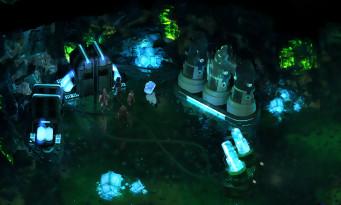 It would also surely have been counterproductive to lengthen the sauce even more because, basically, the game system shows its limits quite quickly. Torment puts forward a system of effort, which consists in spending points of power, speed or intellect in order to increase the chances of success of such or such action. This is well seen, especially since failure is almost never synonymous with game over. It just takes us down a different path, the game prides itself on constantly offering choices that have an influence on what happens next. But once the right companions have been found, it becomes a little too easy to reach the 100% chance of success, which tends to ruin the interest of the system. Similarly, it is important not to count on the fights to bring challenge. Called Crises, they occur extremely rarely, with dialogue and non-aggressive actions making up the vast majority of gameplay. Depending on whether we are bellicose or not, we can regret it or congratulate ourselves on it. In any case, it must be recognized that the rarity of combat makes certain gameplay elements relatively useless. Being able to choose between a Glaive, a Nano and a Jack at the start of the game (ie roughly speaking a warrior, a magician and a balanced character) is ultimately not that important. And the interface appears unnecessarily complex since it has many elements that ultimately serve only rarely.
It would also surely have been counterproductive to lengthen the sauce even more because, basically, the game system shows its limits quite quickly. Torment puts forward a system of effort, which consists in spending points of power, speed or intellect in order to increase the chances of success of such or such action. This is well seen, especially since failure is almost never synonymous with game over. It just takes us down a different path, the game prides itself on constantly offering choices that have an influence on what happens next. But once the right companions have been found, it becomes a little too easy to reach the 100% chance of success, which tends to ruin the interest of the system. Similarly, it is important not to count on the fights to bring challenge. Called Crises, they occur extremely rarely, with dialogue and non-aggressive actions making up the vast majority of gameplay. Depending on whether we are bellicose or not, we can regret it or congratulate ourselves on it. In any case, it must be recognized that the rarity of combat makes certain gameplay elements relatively useless. Being able to choose between a Glaive, a Nano and a Jack at the start of the game (ie roughly speaking a warrior, a magician and a balanced character) is ultimately not that important. And the interface appears unnecessarily complex since it has many elements that ultimately serve only rarely.
GOOD OLD RECIPES
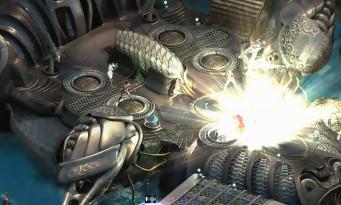 Similarly, the promising flow system (the famous "Tides" of the title) ultimately turns out to be more anecdotal than expected. This is an advanced reputation system that associates colors with emotions and psychological reactions. Blue for wisdom and mysticism. Red for passion and action. Indigo for justice and compromise. Gold for sacrifice and empathy. Money for power and fame. Alas, in practice, we too rarely see the influence of these five flows on our relations with the various inhabitants of the Ninth World. Some talents and skills also seem of little use while others, especially those related to dialogues, can significantly increase the interest of a game. For example, we strongly advise you to choose the talent allowing you to read the minds of the characters. From a purely technical point of view, we can always criticize Torment for offering somewhat simple animations but, overall, the Pillars of Eternity engine does its job properly. At least on PC, because the console versions suffer from strong slowdowns, as well as an impractical interface. In the end, Torment: Tides of Numenera will certainly not become as cult as its predecessor. But it will still appeal to role-players who have acquired a taste for singular, rich and very well-written games.
Similarly, the promising flow system (the famous "Tides" of the title) ultimately turns out to be more anecdotal than expected. This is an advanced reputation system that associates colors with emotions and psychological reactions. Blue for wisdom and mysticism. Red for passion and action. Indigo for justice and compromise. Gold for sacrifice and empathy. Money for power and fame. Alas, in practice, we too rarely see the influence of these five flows on our relations with the various inhabitants of the Ninth World. Some talents and skills also seem of little use while others, especially those related to dialogues, can significantly increase the interest of a game. For example, we strongly advise you to choose the talent allowing you to read the minds of the characters. From a purely technical point of view, we can always criticize Torment for offering somewhat simple animations but, overall, the Pillars of Eternity engine does its job properly. At least on PC, because the console versions suffer from strong slowdowns, as well as an impractical interface. In the end, Torment: Tides of Numenera will certainly not become as cult as its predecessor. But it will still appeal to role-players who have acquired a taste for singular, rich and very well-written games.




